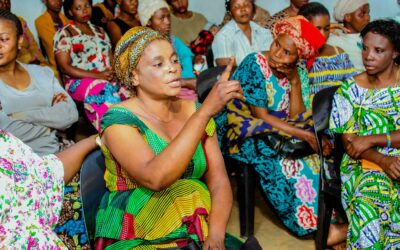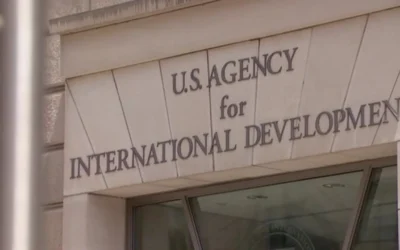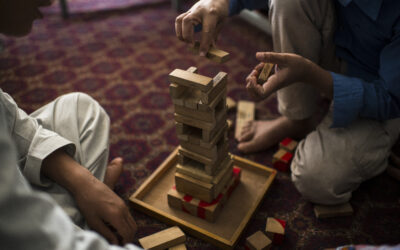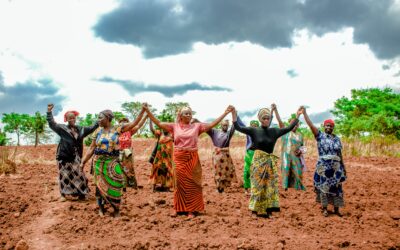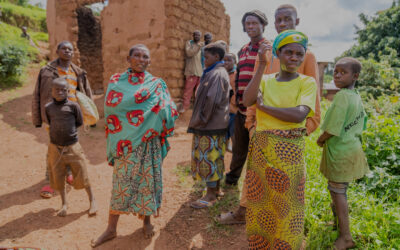How COVID-19 Impacts Other Diseases
The COVID-19 pandemic has strained many parts of people’s lives. One impact we’re highlighting this month is the number of people infected by preventable diseases. Infections such as measles, pneumonia, polio, and the flu can be fatal, but are easily preventable through vaccinations. These are referred to as vaccine-preventable diseases (VPD), and are increasing drastically due to the strain on healthcare during the pandemic, according to the World Health Organization.
The rise in VPD has been caused by overworked healthcare systems struggling to combat the COVID-19 pandemic. Regular services have been paused and hospital resources, including ICU space, are largely reserved for COVID-infected patients. As a result, these treatable illnesses are no longer the main priority.
Vaccinations, which save millions of lives each year, are one of the most affected health care services by the pandemic. Vaccination campaigns in many countries were halted due to country-wide lockdowns, increasing the risk of a resurgence of these diseases. Due to the suspension of these programs, millions of children are at risk of not getting their vaccines. At least 80 million children under the age of one are estimated to be at risk for contracting a disease.
Since the start of the pandemic, measles, cholera, and diphtheria have been observed in Bangladesh, Nepal, Iraq, and other low-income countries. However, disruption has not been limited to the global south. The United States has also seen reduced vaccination rates as well, mainly among children between the ages of two and five.
In response to the growing threat of VPD, a number of countries have begun to take action. Their solutions include training additional healthcare workers to restart vaccination campaigns, providing personal protective equipment that was severely lacking, and combating vaccine misinformation that has resurfaced in the COVID era.
For example, Brazil, and the Pan American Health Organization have begun to train more healthcare professionals and educate communities on vaccines following a recent measles outbreak. Through actions like this, governments are better able to protect the health and safety of their citizens.
This August, One Day’s Wages is highlighting its preventable disease projects and our grassroots partners past and present who are committed to disease prevention and accessible healthcare. In Zimbabwe, Bopoma Villages ensures that rural communities receive consistent access to disease-prevention resources like hand washing stations, clean water, and nutrient-rich crops. In Nepal, Himalayan Healthcare provides the most isolated communities with toilets and septic tanks to reduce the likelihood of food and water contamination. And in Vietnam, the Catalyst Foundation’s “Health and Hygiene” program decreases the occurrence of preventable diseases in marginalized communities (pictured above).
The COVID-19 pandemic has affected communities all across the world in more ways than one. It is essential that a response to community needs addresses both the challenges of the pandemic as well as the shortages in the healthcare field in general. Follow along with One Day’s Wages as we support our partners to address healthcare initiatives to prevent the spread of disease.
Donate, if you’re able, to our preventable diseases area of focus.
More stories of impact
Turning Challenges into Opportunities: Masoka’s Journey of Empowerment
Masoka’s hands are stained with the rich soil of the land she now calls home. A 37-year-old mother of four, she arrived at Dzaleka Refugee Camp in Malawi after fleeing the conflict in her home country, the Democratic Republic of the Congo. The future felt uncertain,...
What Was USAID, and What Now?
USAID has made news headlines constantly over the last few months. You may find yourself wondering: what is USAID, and is One Day’s Wages affected by its dismantling? As a global development organization, we at ODW care deeply about the people who depend on foreign...
Growing Love, One Drop at a Time: How One Woman Turned Her Birthday into a Gift of Clean Water
When Sara, a graphic designer and mother from Oregon, started thinking about how to celebrate her birthday, she decided to do something different—something meaningful. With a belief that “we are all connected… with the power to affect change by how we live our own...
Bridging the Gap: An Update on Our Response to the Funding Freeze
In Matoh, Cameroon, a mother prepares to give birth. Life in a conflict zone means getting to a safe facility with trained health workers is nearly impossible. Fortunately, a new mobile clinic begins offering prenatal care and transportation to a birthing clinic,...
Why We Invest in Women
There’s an old Ghanaian proverb: “If you educate a man, you educate an individual. But if you educate a woman, you educate a family.” On this International Women’s Day, we celebrate the power of women—how their resilience, leadership, and determination transform not...
The Case for Social Inclusion
Today is the World Day of Social Justice! Never heard of it? Never fear, we’re here to fill you in. In 2009, the United Nations General Assembly launched the World Day of Social Justice to recognize our on-going need for inclusive economic development and decent work...
LEARN
Leadership
Transparency
Read the Latest
Contact Us
COLLABORATE
Faith Groups
Schools
Businesses
Get Involved
One Day’s Wages exists to alleviate extreme poverty by investing in, amplifying, and coming alongside locally led organizations in underserved communities.
©2025 One Day's Wages is a registered 501(c)(3) organization | Tax ID #26-2566653 | Privacy policy | Terms of use
P.O. BOX 17575 Seattle, WA 98127 | Contact us

